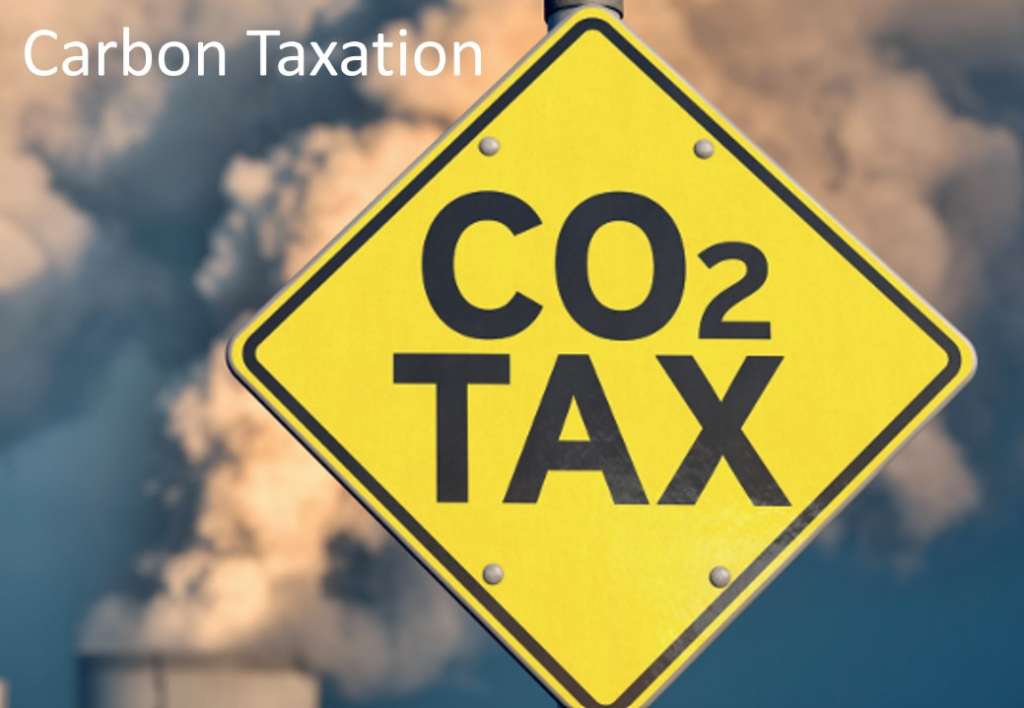RESEARCH
The Role of Carbon Taxation in the Global Energy Transition

The cost of carbon abatement by any company over the next two decades is a key determinant of that company’s value today. Approximately half of the global economy or half the public companies in the world will see the cost of carbon abatement having a material impact on their valuation. With companies in the energy, power, industrial and transport sectors, the cost of carbon abatement poses existential risk.
The cost of carbon abatement can come in different forms including investments in low emission processes or products, purchasing carbon offsets, or paying carbon taxes. Carbon taxes include fuel duties that have been in place for 100 years, fixed price carbon taxes and variable priced taxes via an energy trading system (ETS) or other mechanism. Import taxes are another form which is gaining momentum in what governments are referring to as CBAM (carbon border adjustment mechanism).
To what extent are carbon taxes in place today and to what extent should we expect expansion of their scope and changes in the rate of tax (price of carbon)? Europe launched their taxing regime in 2006 and today has the most extensive system of carbon taxation. The EU has a clear plan for expanding its scope to cover most corporate emissions and will leave buildings and transport emissions to be dealt with through legislation. It appears to us that it is unlikely that the European system or any comprehensive carbon tax regime will be adopted by other major emitting countries including the US and China in the next decade. China boasts the most comprehensive ETS scope, but its implementation today results in 0.2% of Europe’s ETS’ trading volume. Washington has just seen the first carbon tax bill proposed last December, but consensus by Washington followers is that the US is highly unlikely to ever tax carbon domestically.
Many experts suggest that Europe’s CBAM, when implemented in 2026, may force other major exporters to the EU (e.g., the US and China) to adopt EU-like domestic carbon tax regimes, but only over the longer term. In the short term, some form of global CBAM-like program convergence is unlikely, particularly in major industrialised economies such as the US. Emerging economies will call foul with the WTO, calling CBAM protectionist. Finally, disparity in carbon prices will make any convergence ineffective. Investors today will need to look at global businesses using valuation models with different taxation and CBAM assumptions for each region. Companies operating inside the EU need to anticipate incurring a cost of carbon in their imported raw materials. Europe’s CBAM will initially cover imports of cement, iron and steel, aluminium, fertilisers, electricity, and hydrogen.